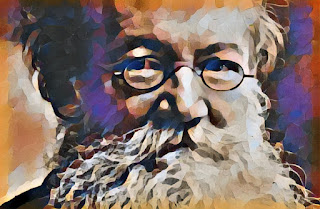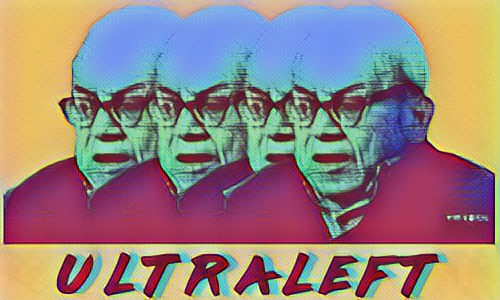Kropotkin’s (R)evolution
Kropotkin presents a scientific basis for understanding evolution as cooperation based rather than competition based. This presents a clear counter argument to social Darwinism which masquerades as scientific.
The great anarchist Kropotkin, advances that Nature as we observe instructs us to mutual aid for the benefit of one another. However, I question the scientism of Kropotkin. If there ought to be no Gods and no Masters there ought to be no Nature. This lends to a metaphysical understanding forming the basis of anarchism. It includes the radical paradox of equality and freedom. How are the two to be reconciled? How does radical individual agency pair with the incredible interdependency of all life? The answer in the synthesis of mutual aid should be unrestrained from any a priori reliance on a Superior Authority whether it be Gods, Masters, or Natures from which we derive the basis of anarchism. Anarchism like mysticism is direct experience. It is lived in action and is a verb rather than a scientific construct.
While a scientific basis for understanding evolution as cooperative is necessary it must also reflect the responsibility of the individual. Yes, what we observe from the natural world builds our scientific understanding but the herd or hive is not to be observed from above but from within and without. Collectivity without personal agency may be as bleakly flawed as the competition mindset of atomized individuals without community.
Instead of looking to anarcho-primitivism, we should be looking to the emergence of a new humanity - if our revolutionary consciousness is truly elevated. This is also in line with evolutionary progress as humanity will continue to become more cooperative than our ancestors.
Even though humanity is born of nature and remains inextricably connected with it, humanity nonetheless occupies a unique position in nature, according to Bookchin. It is in humanity that nature becomes self-conscious, but this consciousness can only be fully realized if the two can be brought into synthesis in the next phase of evolution.
Bookchin never failed to point out the need of a profound spiritual transformation in the emergence of an ecological society. For, Bookchin liberatory social transformation depends on renewal at the most personal level: that of the self.
In his book “The Open Society and Its Enemies”, the philosopher of science Karl Popper characterized scientific socialism as a pseudoscience. He argues that its method is what he calls "historicism", i.e. the method of analyzing historical trends and deriving universal laws from them. He criticizes this approach as unscientific as its claims cannot be tested and in particular are not subject to being disproved. History is too contextualized to derive the inevitability of natural laws of social relations. It is ideas rather than material conditions that drive history.
As libertarian socialists we should rely on epistemological anarchism rather than Naturalism which can be constraining to the freedom of ideas. It is from direct experience that we gain a revolutionary consciousness that drives a cooperative evolutionary trajectory for a synthesis of the social and the ecological - as Kropotkin’s mutual aid brings a reconciliation of liberation and radical equality.





Comments
Post a Comment